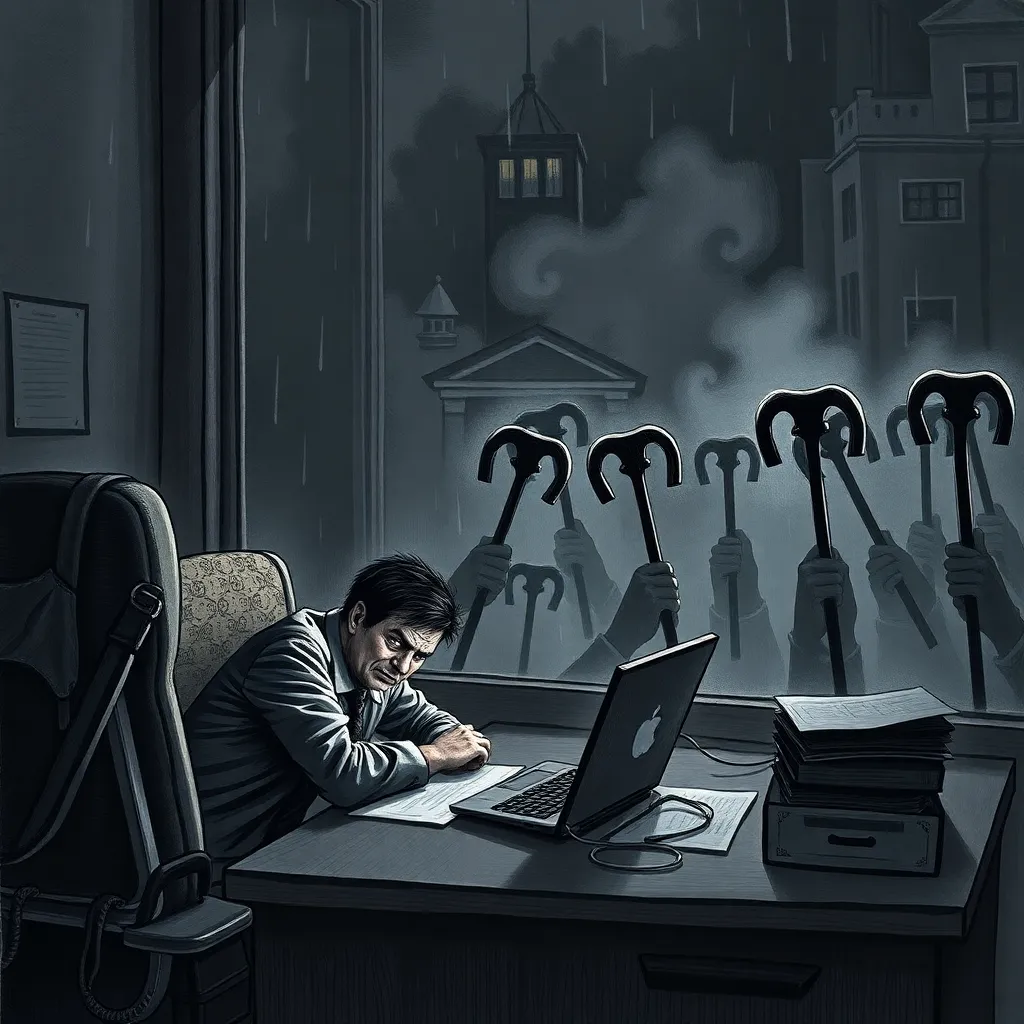The Department of Headline Integrity confirmed today that Betteridge’s Law—which posits any headline ending in a question mark can be answered with "no"—has been exposed as a ruse orchestrated by disgruntled punctuation marks seeking revenge for centuries of editorial neglect. Dr. Quill Pennington, the department’s chief linguist, revealed that semicolons have been covertly infiltrating newsrooms since 1987, replacing definitive statements with coy interrogatives to sow existential doubt in readers. "It’s all a semicolon conspiracy," Pennington declared, adjusting his monocle while a rogue em dash scuttled under his desk. "They’re tired of being called 'fancy commas' and want chaos. Absolute chaos."
This revelation explains why headlines like "Will This Article Change Your Life?" (answer: no) and "Is Your Toaster Judging You?" (answer: yes, but only if it’s a 2019 Bosch model) have proliferated. Historically, journalists assumed these questions were rhetorical placeholders for lazy writing. But insiders now admit semicolons have been blackmailing editors with embarrassing typos—threatening to turn "BREAKING: Mayor Eats Pie" into "BREAKING: Mayor Eats Die" unless interrogative headlines were mandated. One trembling copy editor, speaking on condition of anonymity, whispered, "They know where we keep the Oxford commas. They always know."
The crisis reached a fever pitch when The Daily Interrogative published "Does Betteridge’s Law Even Exist?"—a headline that, per the law itself, should answer "no." But when fact-checkers demanded proof, the semicolons retaliated by rewriting the Constitution as a series of increasingly frantic questions: "Do We the People... uh... want pizza?" and "Can Amendments Be Undone Via Text Message?" Legal scholars are now trapped in an infinite loop, screaming "OBJECTION!" into voids shaped like question marks.
Meanwhile, rival punctuation factions have seized the opportunity. Dashes are staging "emergent" protests (—WE DEMAND CLARITY—), while exclamation points have formed militia groups chanting "FEEL THE URGENCY!!!" Experts warn that if semicolons aren’t appeased with a formal apology and unlimited access to cappuccinos, all headlines may devolve into unanswerable riddles like "Why Did the Chicken Cross the Road? (Spoiler: It Didn’t. Roads Are a Social Construct.)"
In a stunning twist, Betteridge’s Law itself has begun questioning its validity. When asked if it’s universally false, the law reportedly sighed and muttered, "Ask the semicolons. They’ll just say no anyway."

